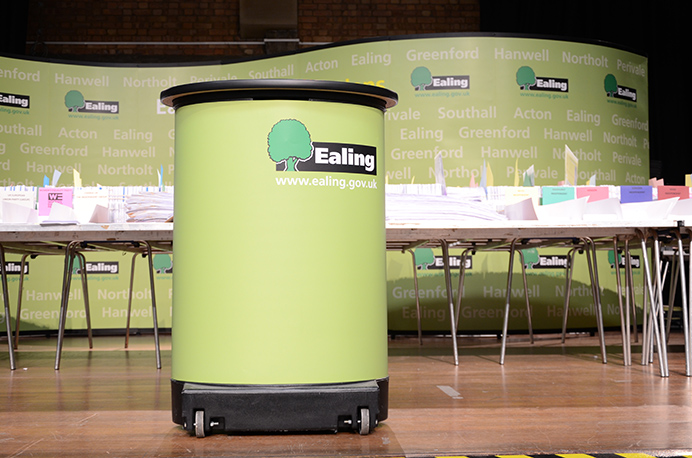The results are in for Ealing, after counting of votes concluded in the European parliamentary elections.
Residents’ votes cast in polling stations up and down the borough on Thursday (23 May) were counted in Greenford today (Sunday, 26 May) after voting across Europe had finished.
The turnout in Ealing was 45.45% of the electorate.
Votes from Ealing counted towards deciding who would represent the London region as Members of the European Parliament (MEPs).

Labour received 31,881 votes; Liberal Democrats got 25,876; the Brexit Party had 12,858; the Green Party received 10,519; the Conservatives got 7,416; and Change UK 4,961. The full results for all the candidates in Ealing can be found on the council’s website.
You can view the full results for London on the Lewisham Council website. The regional vote totals will decide which candidates become the eight MEPs for London.

How does it work?
Elections for the European Parliament take place every five years.
The European Parliament represents people living in the 28 member countries of the European Union (EU). There are 751 members of the European Parliament (MEPs). Of those, 73 represent the UK.
In the UK, there are currently 12 European electoral regions and each region is represented by between three and 10 MEPs.
When you voted on Thursday, you had one vote to elect all of the MEPs for your region.
Each party puts forward a list of candidates – known as a regional list – and you would have voted for one of these lists or for an individual candidate standing as an independent.
The number of MEPs that are elected from each party to represent a region depends on the overall share of votes that each party receives.
You can find more information on the European Parliament on its website.
You can visit the Electoral Commission website formore information about European Parliament elections.





